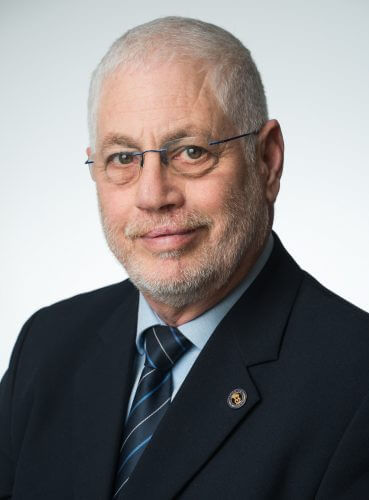Prof. Sion is an expert in the field of nanotechnology and quantum systems. He laid the foundations for the "Community of Nano Researchers" which led to the establishment of the Russell Berry Institute for Research in Nanotechnology (RBNI) which he founded and managed between 2010-200

The Executive Committee of the Technion, headed by Mr. Gideon Frank, chose Prof. Uri Sion from the Faculty of Physics as the next president of the Technion. The executive committee's decision was based on the recommendation of the search committee for the president of the Technion, which was overwhelmingly supported by the academic plenary. The appointment is subject to the approval of the cortorion (the board of trustees of the Technion) which will meet in June. Prof. Sion will assume his position as president of the Technion on October 1, 2019 and will replace Prof. Peretz Lavi, who will complete a ten-year tenure.
Prof. Sion, 64 years old, resident of Haifa, married and father of three. He served as a pilot in the Air Force and then completed a bachelor's degree in physics and mathematics with honors, a master's degree in physics with honors, and a PhD in physics with first honors, all at Tel Aviv University. In 1991, after three years at IBM's research center in Yorktown Heights, New York, Prof. Sivan joined the faculty of physics at the Technion and is the head of the Bartoldo Badler Chair. His research over the years spanned a wide range of topics, from the physics of small quantum systems through the harnessing of molecular biology to the self-construction of tiny electronic devices, and in recent years he has focused on the influence of the structure of water near surfaces and molecules on interactions relevant to biology. Within this framework, the research group led by him developed a unique atomic force microscope with one of the highest resolution in the world.
To Prof. Sion's credit are credited several important scientific works in the many fields in which he dealt. In the knowledge in which he and his colleagues Professors Erez Brown and Yoav Eishan demonstrated for the first time the harnessing of molecular recognition by DNA molecules for the wiring of an electric circuit. This article received a great response and opened, together with the works of other researchers, a new field in nanotechnology - using the self-building properties of biological molecules to assemble miniaturized engineering systems.
Prof. Sion is a sought-after lecturer at scientific conferences in Israel and around the world. He won many awards including the Landau Prize from the Lottery, the Bruno Prize from the Rothschild Foundation, the Bergman Prize from the Israel National Academy of Sciences and the Herschel Rich Prize and the Taub Prize from the Technion. His scientific works led to many patents and were applied in industry. Recently, an Israeli start-up company was even established based on the technology he developed, which deals with the diagnostics of individual cancer cells.
Prof. Sion held a series of senior positions at the Technion and in the State of Israel:
At the Technion, he laid the foundations for the "community of nano researchers" that led to the establishment of the Russell Berry Research Institute in Nanotechnology (RBNI), which he founded and managed between 2010-2005. The Russell Berry Institute led the scientific revolution in the field of nanotechnology at the Technion and placed it at the forefront of global research in the field. Later the institute became famous in the media when Prof. Sion and Dr. Ohad Zohar engraved the entire Bible on a tiny silicon chip. The nano-bible was written as part of an educational program developed at the institute to increase the interest of young people in science and especially in nanotechnology. In 2009, the then president of the country, Shimon Peres, presented the nano-Bible to Pope Benedict XVI during his visit to Israel. Today there are three copies of the chip - in the Vatican Library, the Smithsonian Museum in Washington and the Israel Museum in Jerusalem.
The establishment of the Russell Berry Institute for Nanotechnology at the Technion contributed greatly to the development of the Israeli national program in nanotechnology, which together with centers established at other universities placed Israel at the forefront of global research in the field.
About two years ago, Prof. Sion was asked to establish the national advisory steering committee for the Planning and Budgeting Committee of the Council for Higher Education, on quantum science and technology issues and to chair it. This committee outlined the national academic plan in the field, which was adopted by Vat and launched under his leadership about a year ago.
In his national positions, he previously served as a member of the National Council for Research and Development and a member of the Scientific Advisory Committee for the Beth Sheva de Rothschild Foundation. He is currently a member of the advisory committee for the "Mauf" foundation for the advancement of the Arab population in institutions of higher education and the scientific advisory committee for the Wolfson Foundation in Israel.
Education issues are close to his heart. He chaired a committee appointed by the Ministry of Education to develop "Science and Technology for All" - a literacy course for high school students who do not study science - and was responsible for the subject for about a year and a half.
More of the topic in Hayadan:
